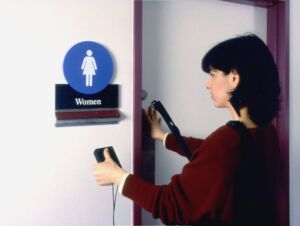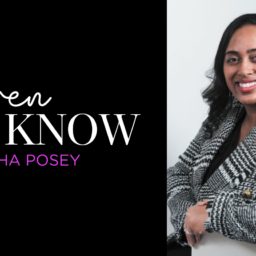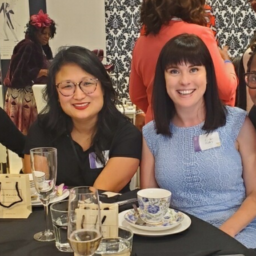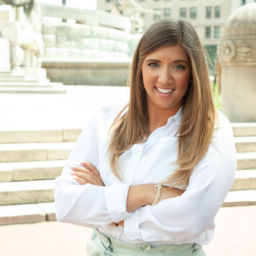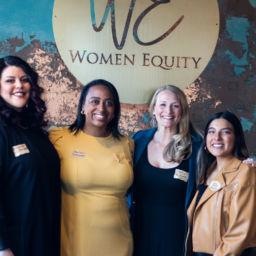
According to the Center for Disease Control (CDC), around 61 million adults in the United States—or one in four people—live with a disability. And while disabilities can impact one’s physical, sensory, cognitive or mental health, they don’t have to impact one’s quality of life.
As residential and corporate communities continue investing in diversity, equity and inclusion, it’s important that there’s also an understanding and investment into ensuring accessibility. All too often, groups accidentally overlook the small inclusive steps they can take to support each and every employee or community member—which includes our disabled neighbors. Here are a few ways companies and communities can prioritize accessibility in their DEIA strategies.
Lead with respect.
It sounds simple; however, too often fully abled individuals simply ignore or look past disabled individuals. Education about different disabilities is also a great way to ensure your interactions with disabled neighbors, colleagues and friends are received respectfully.
Prioritize accessibility at events.
Concerts, farmers markets, First Fridays—there’s no shortage of things to do in Indy! But for the disabled community, it can be difficult to navigate and experience events. Here are a few opportunities to be more inclusive in event experiences:
- Ensure large-print materials are available so that low-vision individuals can still experience printed materials.
- Use Qr codes that ensure low-vision individuals can electronically access and enlarge materials.
- Ensure that interpreters have visible locations so that the deaf or hard-of-hearing community can see them clearly and comfortably.
- Consider ramps near every stair so that those unable to step can enter into meeting rooms and venues.
Employ disabled people.
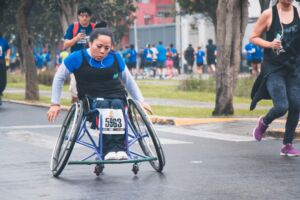
Having a disability does not prevent people from completing all tasks. Locally, companies like Business Equity for Indy and Women’s Equity (WE) Brunch are working diligently to ensure that Black professionals and leaders are equipped with the right skills and paid fairly. Just as communities rally to ensure equity for minorities and women, it’s critical that disabled individuals have opportunities to obtain gainful employment. Companies in Indy interested in diversifying their hiring should contact Bosma Enterprises for support.
Provide diversity and inclusion training to employees.
In today’s post-pandemic reality, attracting and retaining talent is harder than ever before. However, talent research continues to illustrate that skilled workers want to be in inclusive spaces. Through diversity and inclusion training programs, employees are equipped with the skills to better respect one another and the communities they serve.
Make sure that the disabled community has a voice in solutions.
Many people with disabilities are ready to share their experiences, and in doing so, companies and communities are elevating their voices. Their firsthand experiences and insights often lead to innovative solutions that create ripples of improvement in communities.
While fully abled individuals likely won’t ever understand the stress or weight of living with a disability, we commit to being allies for our disabled peers, colleagues and friends. Interested in learning more about Indiana’s efforts to support disabled Hoosiers? You can find more on that via the Indiana State Government website.
Casey (Cawthon) Harrison has been a lifelong Hoosier since she was two years old. Harrison is a two-time graduate of IUPUI, most recently with her master’s in applied communication specializing in business media. Harrison currently serves as the vice president of marketing and communications with the Indy Chamber and recently celebrated her eleventh year as an associate faculty at IUPUI. Additionally, she recently launched Polished Strategic Communications, a boutique firm located in Indy. Harrison serves on the board of directors for PATTERN, is on the advisory board for the Indiana Fashion Foundation, and is on the Rev 2022 engagement committee. When off the clock, Harrison is often searching for the newest public art installation, traveling, or hanging out with her son, husband, and rescue dog, Einstein.
All of our content—including this article—is completely free. However, we’d love it if you would please consider supporting our journalism with an Indy Maven membership.







